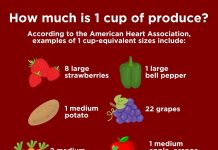
Sleep, an essential component for overall wellness, might just be lying on our plates.
A research team from Columbia University delved into the exploration of the potential link between dietary habits, particularly focusing on refined carbohydrates, and sleep quality, uncovering fascinating findings related to insomnia.
Refined Carbohydrates and Restless Nights
Insomnia, a pervasive sleep disorder, characterizes itself by difficulties in falling asleep, maintaining sleep, or waking up prematurely, often resulting in daytime tiredness.
While several factors like mental health, physical conditions, and certain medications influence insomnia, the role of diet, specifically carbohydrate intake, has delivered mixed results in previous studies.
Exploring Glycemic Index and Sleep Quality
In this study, researchers scrutinized the connections between dietary glycemic index (GI), glycemic load, and various carbohydrate types, attempting to unravel their impact on sleep.
GI provides a measure of how foods influence blood sugar levels, with high-GI foods such as white bread and potatoes causing a rapid surge in blood sugar.
The research team hypothesized that higher dietary GI and glycemic load would correlate with increased risks of insomnia and investigated data from the Women’s Health Initiative Observational Study, involving over 93,000 older women aged between 50 and 79.
Tying Diet to Dreams: The Findings
The findings unfurled a captivating relationship between carbohydrate intake and sleep:
High GI and Sleep: A correlation was discerned between higher dietary GI and elevated risks of insomnia.
Sugars and Starch: Elevated consumption of added sugars, starch, and nonwhole/refined grains were also intertwined with higher risks of insomnia.
Fruits, Vegetables, and Better Sleep: In contrast, greater intakes of whole fruits and vegetables were robustly linked to a reduced risk of insomnia, as were higher intakes of dietary fiber, whole grains, and non-juice fruit.
Sweet Solutions: Mitigating Insomnia with Dietary Choices
This research, conducted by James E Gangwisch et al. and published in The American Journal of Clinical Nutrition, proposes that high-GI diets could pose as a risk factor for insomnia in older women.
As a potential countermeasure, the team suggests a dietary shift towards minimally processed, fiber-rich carbohydrates as a strategy to prevent or manage insomnia and enhance sleep quality.
Conclusion: Savoring Sleep Through Dietary Decisions
As we delve into the intricate tapestry interweaving our dietary habits and sleep quality, these findings shine a spotlight on the potential influence of refined carbohydrates on sleep.
The exploration prompts further inquiries into how strategic dietary interventions might not just nourish our bodies but also enhance the quality of our rest, paving the way towards a better understanding of how our food choices permeate our nightly slumbers.
In essence, a mindful glance at our plates might just be the key to unlocking serene, restful nights.
Follow us on Twitter for more articles about this topic.
Copyright © 2023 Scientific Diet. All rights reserved.








